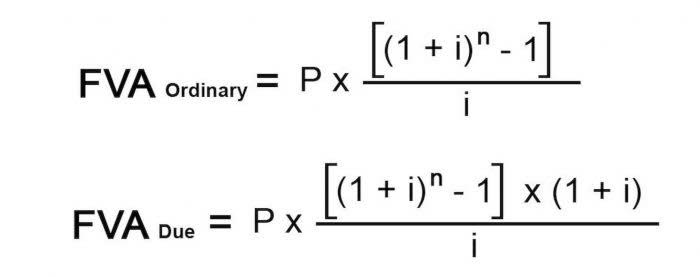How To Set Up The Chart Of Accounts For Law Firm Clients

Your law firm chart of accounts should also track amounts that your firm uses for client expenses, where you expect reimbursement at some point in the future. These amounts include reimbursable client costs, non-reimbursable client costs, and advanced client costs. With a well-organised chart of accounts, you can generate accurate and detailed financial reports, allowing for better decision-making. These reports help you track the chart of accounts for law firm financial health of your firm, analyse performance by practice area, and improve cash flow management. Bookkeeping tracks day-to-day transactions – receipts, disbursements, invoices, and payments.

Step 3: Separate Trust and Operating Accounts

Trust account liabilities are another important liability for law companies. Most of the time, law companies hold client funds like retainer fees, bookkeeping settlement payments, and court-awarded damages in trust. These funds are kept in a different trust account and are not thought of as the law firm’s property.

Law Firm Chart of Accounts
A chart of accounts is the backbone of any law firm’s accounting system, providing a comprehensive and organized list of all financial accounts used to record and manage financial transactions. For law firms, a well-structured chart of accounts is essential for effective financial management, as it allows for precise tracking of income, expenses, assets, liabilities, and equity. By organizing financial accounts in a logical manner, law firms can streamline their financial processes, ensure compliance with industry regulations, and generate accurate financial reports. This structure not only supports day-to-day tracking of income and assets liabilities but also lays the groundwork for long-term financial health and informed decision-making. With a well-structured chart of accounts, law firms can easily monitor their financial performance and maintain accurate records for all financial transactions. They can help level up your firm and make the legal accounting process even smoother by adding legal accounting and legal practice management software to your firm’s toolkit.
Trust Accounting 101 for Lawyers and Law Firms
It offers simpler online accounting solutions, making it easier for law firms to manage their finances efficiently and effectively. Consistent monitoring and updating of the budget are necessary to ensure that it aligns with the firm’s financial goals. By efficiently managing these aspects of their finances, law firms can make informed decisions about resource allocation to support sustainable growth.

Compliance Tips for Legal Bookkeeping

An ideal candidate should have a deep understanding of trust accounting laws to ensure compliance and prevent any legal issues. Explore the top accounting software options for law firms and find out how they can streamline your financial management. Ensuring that proper procedures are followed in managing trust accounts is essential for maintaining the integrity of a law firm.
Depreciating Equipment for Tax Purposes
This prevents commingling with your firm’s funds (your operating account) so you don’t purposely or accidentally spend money that isn’t yours. You earn this money upon the completion of billable work, which can occur during the case as an invoiced bill or upon completion of the case as a final invoice. When setting up your firm’s chart of accounts, the details matter, so be sure to review each item to make sure that it is always properly attributed in your accounting system. Ensure your firm’s financial health and streamline your billing processes with our team by your side.
- Additionally, consider utilizing accounting software that integrates seamlessly with your chosen bank for efficient reconciliation and reporting.
- Likewise, if the law firm experiences a period of low cash flow, it may be able to use its assets as collateral to secure a line of credit or other form of short-term financing.
- While we always advise referring to your specific state’s rules, the ABA’s Model Rules of Professional Conduct can offer direction for law firm accounting.
- Hopefully, the above Chart of Accounts for law firms in QuickBooks helps set up the most basics for a law firm’s needs.
- This separation is the core of QuickBooks trust accounting and IOLTA compliance.
- Yet, as your hard work continues to pay off in spades and more people are drawn to your client-centered service, legal management software can play a powerful part in helping your firm reach new heights.
- Our approach involves developing a tailored COA that effectively serves a law firm’s unique requirements.
- Consider implementing regular training sessions for staff members involved in financial record-keeping.
- A common mistake is setting up a chart of accounts that don’t accommodate future growth or changes in your practice.
- Attorneys use the application to record billable and nonbillable time and expenses.
Legal bookkeeping is more than just tracking revenue and expenses – it’s the backbone of compliance, transparency, and profitability in your law firm. Additionally, Bench provides online bookkeeping services with professional bookkeepers experienced in legal accounting to gather and turn data into accurate financial statements. This technology not only simplifies the management of client funds but also offers advanced reporting and analytics features that provide valuable insights for enhancing http://intell.abson.cz/note-receivable-definition-explanation-journal/ law firm operations. Failing to make this distinction can lead to compliance issues and inaccurate financial records, impacting the firm’s reputation and potential for growth. It helps in organizing and categorizing all financial transactions for a law firm. This includes distinguishing client funds from the operational finances of the law firm, ensuring clarity and compliance with regulatory requirements.
How to Start a Business in Virginia: Legal, Tax & Licensing Essentials
If lawyers have a pooled trust account with multiple clients’ funds, they must also keep track of transactions made with each client’s funds. When outdated Bar Association rules are not adhered to, it can lead to financial losses for law firms. Moreover, using legal-friendly services like LawPay and LawCharge can help avoid these unnecessary expenses while ensuring compliance with trust accounting laws. When done correctly and consistently, legal accounting can help law firms better manage expenses and costs and identify opportunities for increasing revenue. Proper accounting records can also help lawyers make informed, data-driven decisions for their firms and can aid in financial planning for greater long-term success.

